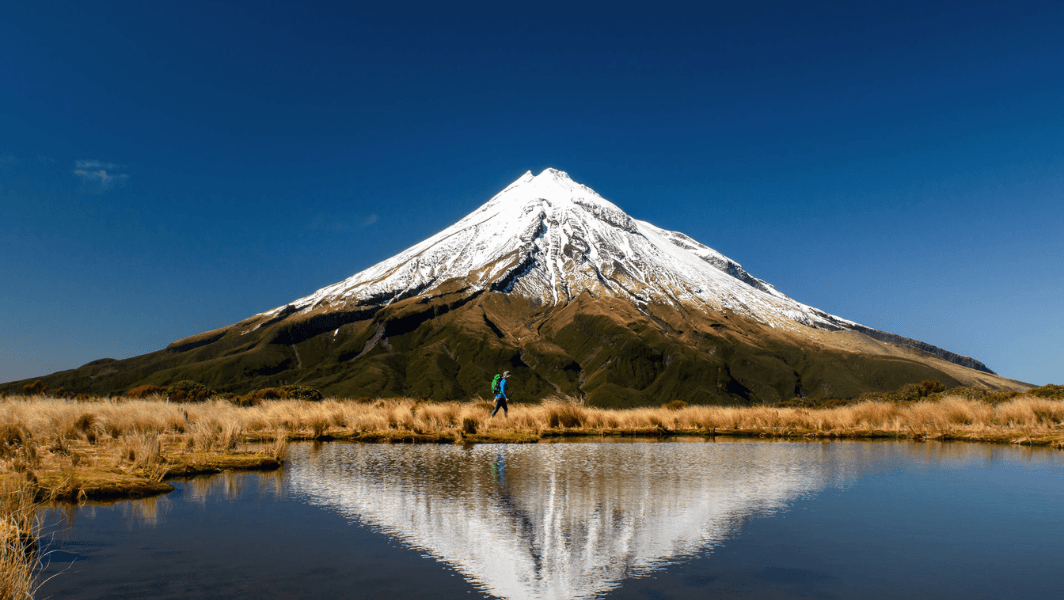
New Zealand Grants Personhood to Taranaki Maunga, Honoring Indigenous Māori Heritage
A Historic Step in Indigenous Recognition
In a landmark decision, New Zealand has officially granted personhood to Taranaki Maunga, a sacred mountain deeply revered by the Indigenous Māori people. The new law, passed unanimously by Parliament on Thursday, recognizes the mountain as a legal entity with the same rights, powers, and responsibilities as a human being.
Restoring Māori Sovereignty Over Their Ancestral Land
The recognition of Taranaki Maunga marks a significant milestone in New Zealand's ongoing efforts to address historical injustices faced by Māori communities. For centuries, the mountain has been considered an ancestor by the eight Taranaki iwi (tribes). However, colonial rule led to its confiscation in 1865, stripping Māori of their rights to the land. The new legislation is part of a broader redress agreement, honoring a settlement signed in 2023.
Taranaki Maunga: A Living Entity
Under the law, Taranaki Maunga is recognized as "Te Kāhui Tupua," described as a "living and indivisible whole," incorporating its physical and metaphysical elements. To represent its legal personality, a governance entity will be established, comprising four members from local Māori iwi and four members appointed by the country’s Conservation Minister.
Colonial History and Cultural Suppression
Taranaki Maunga’s history is intertwined with New Zealand’s colonial past. The mountain was originally named Mount Egmont by British explorer Captain James Cook in 1770, a name imposed without consultation with the Māori. Despite the Treaty of Waitangi being signed in 1840—an agreement intended to protect Māori land rights—the British Crown continued to breach its terms, leading to the forced seizure of vast Māori territories, including Taranaki.
During the late 19th and 20th centuries, Māori spiritual practices linked to the mountain were suppressed while tourism and outdoor recreation were promoted by colonial authorities. Māori had little to no say in the management of their sacred site until recent decades.
Māori Advocacy and Legal Progress
The recognition of Taranaki Maunga follows a decades-long struggle by Māori activists to reclaim cultural and legal rights. The Māori protest movements of the 1970s and 1980s played a crucial role in reshaping New Zealand’s legal landscape, leading to stronger protections for Māori language, culture, and land rights.
Legal Precedents in New Zealand’s Environmental Protection
New Zealand has been at the forefront of granting legal personhood to natural features as part of Indigenous reconciliation. In 2014, the country recognized Te Urewera, a vast native forest, as a legal person, ending government ownership and transferring its guardianship to the Tūhoe tribe. Three years later, in 2017, the Whanganui River received similar legal status in acknowledgment of its deep cultural significance to local Māori.
Protecting Taranaki Maunga’s Future
The newly established rights of Taranaki Maunga will focus on its health, conservation, and cultural restoration. The law prohibits forced sales, promotes traditional Māori stewardship, and ensures the preservation of native wildlife in the region. Public access to the mountain will continue, but with a renewed emphasis on sustainable tourism that aligns with Māori values.
A Moment of Unity Amid Ongoing Political Tensions
The unanimous passage of the bill was met with a celebratory waiata (Māori song) from the public gallery, filled with supporters from Taranaki. This moment of unity comes at a time when race relations in New Zealand are under scrutiny. In November, mass protests erupted against a proposed law that seeks to redefine the Treaty of Waitangi, with critics warning that it could strip Māori of their legal rights.
Despite political challenges, the recognition of Taranaki Maunga as a legal person stands as a testament to New Zealand’s ongoing journey toward reconciliation and Indigenous empowerment.
For any enquiries or information, contact info@thelawreporters.com or call us on +971 52 644 3004. Follow The Law Reporters on WhatsApp Channels